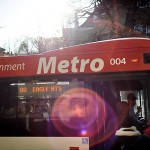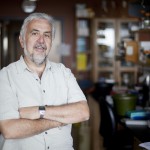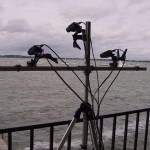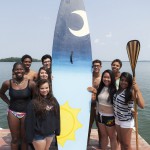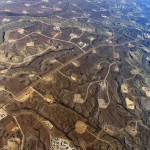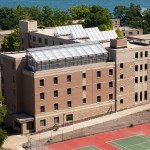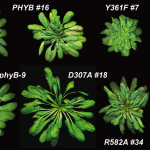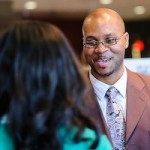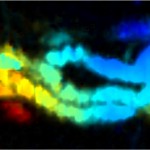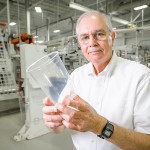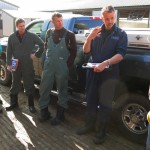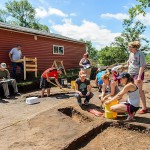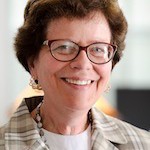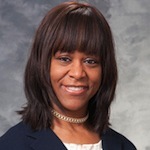Bus passes and transportation permits on sale online
Online sales of employee bus passes and transportation permits for the 2014-15 academic year has begun at the Transportation Services website.
Mining bacterial blueprints yields novel process for creation of fuel and chemical compounds
A team of researchers at the University of Wisconsin–Madison has identified the genes and enzymes that create a promising compound — the 19 carbon furan-containing fatty acid (19Fu-FA). The compound has a variety of potential uses as a biological alternative for compounds currently derived from fossil fuels.
Pre-college programs open doors for leadership roles
Whether their connections were social, academic or professional, former participants in UW–Madison's summer residence programs through University Housing say the camps were essential for creating future opportunities.
Drilling in the dark: Biological impacts of fracking still largely unknown
As production of shale gas soars, the industry's effects on nature and wildlife remain largely unexplored, according to a study by a group of conservation biologists published in Frontiers in Ecology and the Environment on August 1.
UW-Madison’s newest residence hall achieves LEED Gold
Leopold Residence Hall, which opened in August 2013, has achieved LEED Gold certification for its design and operation.
UW Population Health Institute awarded $12 million to build culture of health
The Robert Wood Johnson Foundation (RWJF) has announced it will continue to fund the University of Wisconsin Population Health Institute (UWPHI) to rank and provide guidance for improving the health of America’s counties from Florida to Alaska.
Recent sightings: Walk work
Construction workers erect a concrete form as they build a new base and retention wall for a raised pedestrian crosswalk at North Park Street leading to Bascom Hill at the University of Wisconsin–Madison on July 30, 2014.
Tricking plants to see the light may control the most important twitch on Earth
Copious corn growing in tiny backyard plots? Roses blooming in December? Thanks to technology that the University of Wisconsin–Madison’s Richard Vierstra has been developing for years, these things may soon be possible. And now, new findings out of the genetics professor’s lab promise to advance that technology even further.
UW-Madison Day brings slice of campus to state fair
For the fourth consecutive year and sixth year overall, UW–Madison will host its own day at the Wisconsin State Fair as a way to promote education and give back to the community.
Antique and classic boat tour to stop at campus
A fleet of vintage watercraft from the last seven decades, including Chris Crafts, Centuries, Gar Woods and more, will be on tour in Lake Mendota along the Memorial Union shore on Friday, Aug. 1 to benefit the health of Madison’s lakes.
Wisconsin plastics industry has roots in modest, multitalented UW–Madison professor
“The Graduate” is a running joke in the plastics industry. In that 1967 Dustin Hoffman movie, a character famously — and accurately — summarized the future in one word: “Plastics.” The movie may have been influential, but Tom Mohs, founder of the Madison plastics manufacturer Placon, says he owes nothing to it. “I was already buying my second thermoforming machine when the movie came out,” says Mohs. “No, I owe it to Ron Daggett.”
Grant generates increased access, network training to Dairyland Initiative
The Dairyland Initiative - a UW School of Veterinary Medicine outreach program that works with farmers to optimize cow comfort, health and milk production - has received a renewal grant of $50,000 from the Dean Foods Foundation. The grant will allow the initiative to continue providing free access to its web-based resources for dairy farmers across the country and create a network of trained, certified consultants for planning and facilitating new welfare-friendly designs.
Eight honored by UW–Madison as Outstanding Women of Color
Eight winners of the 2014-15 Outstanding Women of Color awards, who are heavily involved in the campus as well as the Madison community through their work toward research and civic enrichment, have been announced by UW–Madison.

